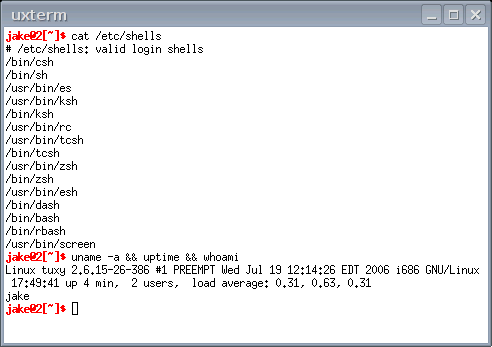.gif)
Clear (Unix)
Encyclopedia

Unix
Unix is a multitasking, multi-user computer operating system originally developed in 1969 by a group of AT&T employees at Bell Labs, including Ken Thompson, Dennis Ritchie, Brian Kernighan, Douglas McIlroy, and Joe Ossanna...
computer operating system
Operating system
An operating system is a set of programs that manage computer hardware resources and provide common services for application software. The operating system is the most important type of system software in a computer system...
command which is used to clear the screen.
Depending on the system, clear uses the terminfo
Terminfo
Terminfo is a library and database that enables programs to use display terminals in a device-independent manner. This library has its origins in the UNIX System III operating system....
or termcap
Termcap
Termcap is a software library and database used on Unix-like computers. It enables programs to use display computer terminals in a device-independent manner, which greatly simplifies the process of writing portable text mode applications...
database, as well as looking into the environment for the terminal type in order to deduce how to clear the screen. The Unix command clear takes no arguments and is roughly analogous to the MS-DOS
MS-DOS
MS-DOS is an operating system for x86-based personal computers. It was the most commonly used member of the DOS family of operating systems, and was the main operating system for IBM PC compatible personal computers during the 1980s to the mid 1990s, until it was gradually superseded by operating...
command cls
Cls (computing)
cls is a command used by the command line interpreters COMMAND.COM and cmd.exe on DOS, OS/2 and Microsoft Windows operating systems to clear the screen or console window of commands and any output generated by them. It does not clear the user's history of commands, however...
.

